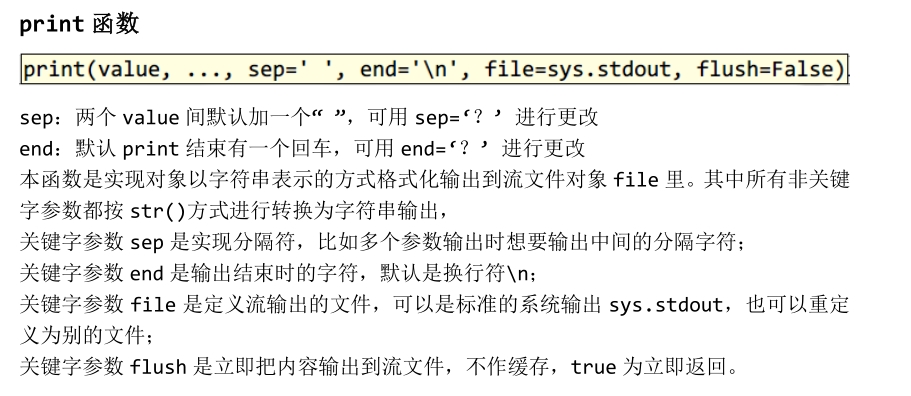|
|
 发表于 2016-9-28 22:26:11
|
显示全部楼层
发表于 2016-9-28 22:26:11
|
显示全部楼层
print是包含默认参数的
其中有一个end默认为【换行】,所以直接调用print()就会输出一个换行
你可以用F1查看帮助文档
print(*objects, sep=' ', end='\n', file=sys.stdout, flush=False)
Print objects to the text stream file, separated by sep and followed by end. sep, end and file, if present, must be given as keyword arguments.
All non-keyword arguments are converted to strings like str() does and written to the stream, separated by sep and followed by end. Both sep and end must be strings; they can also be None, which means to use the default values. If no objects are given, print() will just write end.
The file argument must be an object with a write(string) method; if it is not present or None, sys.stdout will be used. Since printed arguments are converted to text strings, print() cannot be used with binary mode file objects. For these, use file.write(...) instead.
Whether output is buffered is usually determined by file, but if the flush keyword argument is true, the stream is forcibly flushed.
帮你翻译好了见下面图片

|
评分
-
查看全部评分
|
 ( 粤ICP备18085999号-1 | 粤公网安备 44051102000585号)
( 粤ICP备18085999号-1 | 粤公网安备 44051102000585号)